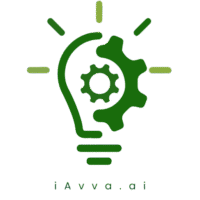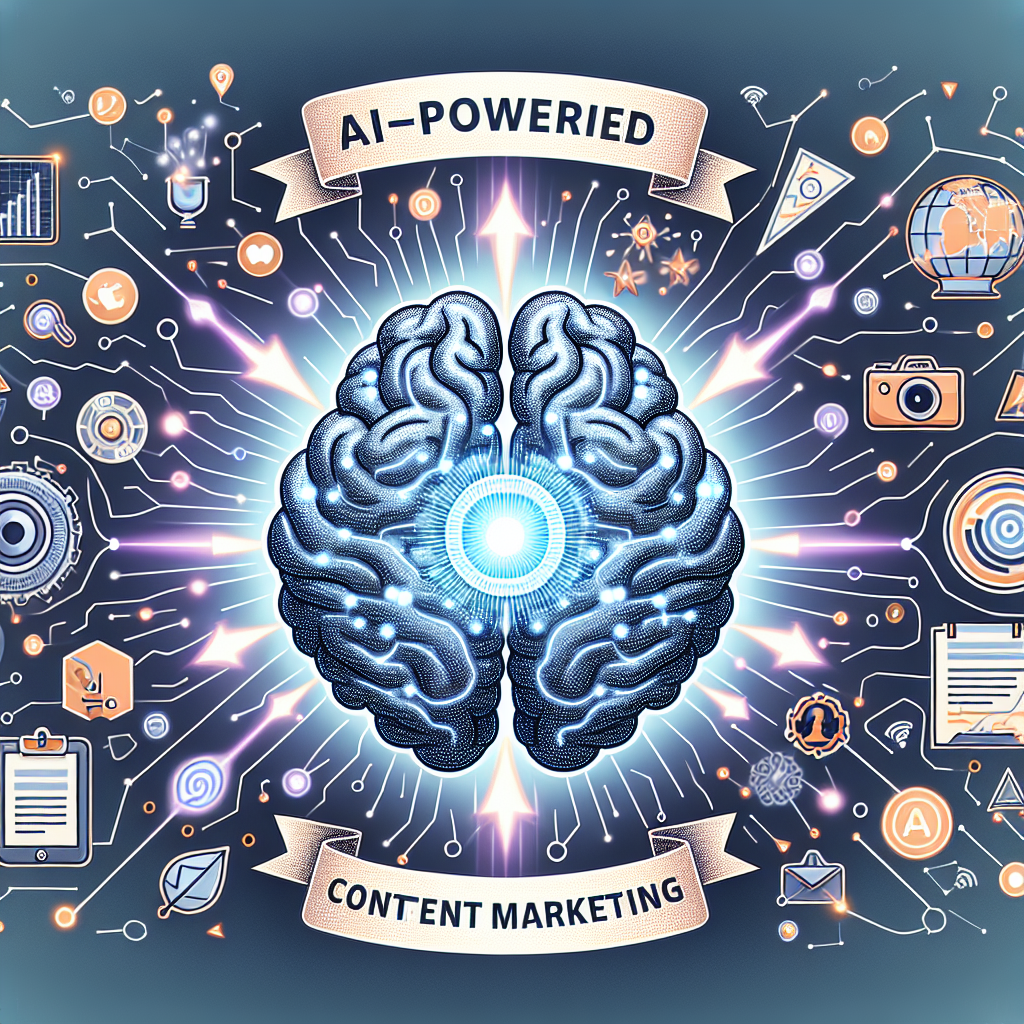Leveraging AI for Business: A Practical Guide to Implementation
In today’s rapidly evolving digital landscape, artificial intelligence (AI) is transforming the way businesses operate. From enhancing customer experiences to optimizing operations, AI offers unparalleled opportunities for growth and efficiency. This practical guide will explore how to effectively implement AI business solutions, ensuring your enterprise remains competitive and innovative.
Understanding the Benefits of AI in Business
Imagine a world where decisions are made with precision, customer experiences are tailored to individual whims, and operational efficiencies are achieved with minimal human error. Well, welcome to the realm of artificial intelligence business solutions! Leveraging AI opens up a treasure trove of opportunities that can redefine how businesses operate and compete.
1. Enhanced Decision-Making
At the heart of AI’s allure is its capability to process vast amounts of data and generate insights that would leave even the most diligent analyst reaching for another cup of coffee. Whether it’s AI-powered decision-making or predictive analytics, businesses can now anticipate market trends, optimize pricing strategies, and make informed choices with the ease of clicking a button.
- Example: Retail giants like Amazon use predictive analytics to forecast demand and stock inventory accordingly, ensuring customers never see “Out of Stock.”
2. Operational Efficiency
If only we could all have a personal assistant as efficient as Iron Man’s J.A.R.V.I.S! AI technologies for business like intelligent automation solutions streamline processes by taking over repetitive tasks, reducing errors, and saving time—your most precious asset.
- Example: Robotic Process Automation (RPA) in businesses automates routine tasks such as invoice processing or customer onboarding with superhuman efficiency.
3. Personalized Customer Experience
The key to winning hearts (and market share) lies in delivering personalized experiences. AI-enhanced customer experience allows companies to analyze customer behavior and preferences deeply, offering tailor-made recommendations that are just too good to refuse.
- Example: Netflix’s recommendation engine uses machine learning algorithms to suggest shows based on viewing history, resulting in more binge-watch marathons than we’d care to admit!
4. Innovation and Competitive Advantage
The early bird gets the worm—but in today’s world, it’s the early tech adopter who gets ahead. Strategic AI implementation in companies not only fosters innovation but also provides a competitive edge by enabling new business models and revenue streams.
- Example: Companies like Uber have integrated AI into their operations for real-time data analysis with artificial intelligence tools ensuring optimal route mapping and surge pricing adjustments.
The benefits of integrating AI into your business strategy go beyond just improving processes; they create a framework where innovation thrives. To explore more about how you can leverage these technologies effectively, dive into our insights on strategic ways to improve your business performance with AI.
Identifying Key AI Business Applications
In the labyrinth of AI in the business world, one might get lost between buzzwords and tech jargon. Don’t worry, we’re here to decipher the matrix for you! Let’s explore some key applications of AI that are not only transforming businesses but also revolutionizing industries.
1. AI-Enhanced Customer Experience
- Chatbots and Virtual Assistants: These tireless digital assistants enhance customer service by providing 24/7 support, reducing response times significantly. According to a report by Gartner, by 2027, chatbots will become the primary customer service channel for roughly a quarter of organizations. No more waiting on hold listening to elevator music!
- Personalized Recommendations: By analyzing customer data and preferences, AI-powered systems can suggest products or services that align perfectly with individual needs—think Netflix or Amazon’s “You might also like” feature.
2. Predictive Analytics in Business
- Demand Forecasting: Leveraging historical data, AI can predict future product demand trends, helping businesses optimize inventory levels and reduce waste.
- Risk Management: With predictive analytics, companies can identify potential risks before they become full-blown disasters—kind of like having a crystal ball but without the mystic fog.
3. Intelligent Automation Solutions
- Robotic Process Automation (RPA): Automate repetitive tasks such as data entry or invoice processing, freeing up employees to focus on more creative and strategic tasks. McKinsey & Company highlights that RPA adoption can lead to cost reductions of up to 30%.
- Cognitive Computing for Businesses: Using advanced AI technologies like machine learning and natural language processing to simulate human thought processes in complex decision-making scenarios.
If you’re curious about applying these AI-driven strategies in leadership roles or unlocking the hidden potential within your organization, you might want to dive into our guide on practical applications of AI in leadership. Remember, understanding these key applications is your first step towards harnessing AI for competitive advantage!
Dive deeper into how Fortune 100 companies are turning these tech marvels into tangible business benefits at our resource on leveraging AI for competitive advantage.
The possibilities with artificial intelligence business solutions are as endless as your imagination. So why not let your imagination run wild?
Developing a Strategic AI Implementation Plan
In the whirlwind of technological advancements, developing a strategic AI implementation plan can feel akin to taming a digital beast. Yet, with the right approach, businesses can transform this challenge into an opportunity for growth and innovation. Embracing AI-driven business strategies requires not just enthusiasm but also meticulous planning and alignment with organizational goals.
1. Setting Clear Objectives
- Identify Key Areas: The first step in crafting your AI strategy is pinpointing where artificial intelligence business solutions can make the most impact. This could range from optimizing operations with machine learning algorithms to enhancing customer experiences through AI-enhanced interactions.
- Align with Business Goals: Ensure that your AI initiatives resonate with your overarching business objectives. For instance, if customer satisfaction is a priority, consider integrating AI-powered decision-making tools to personalize user experiences.
2. Building the Right Team
- Diverse Expertise: Assemble a team that blends technical prowess with strategic vision. This means involving data scientists who can develop scalable AI models for businesses alongside decision-makers who understand enterprise needs.
- Cross-Functional Collaboration: Encourage collaboration across departments to ensure a holistic approach to AI integration. After all, artificial intelligence in enterprises isn’t just about technology—it’s about transforming how we do business.
3. Selecting the Right Technologies
- Pilot Programs: Start small by implementing pilot programs using emerging technologies like deep learning for enterprise solutions or robotics process automation in businesses. This helps gauge effectiveness before full-scale deployment.
- Evolving Tools: Choose AI tools for companies that are adaptable and scalable, catering to both immediate and future needs. Cloud-based AI services for businesses offer flexibility and ease of integration.
4. Monitoring and Adaptation
- Continuous Evaluation: Regularly assess the performance of your AI applications against predefined metrics. This ensures that your strategy remains aligned with evolving business landscapes and market demands.
- Pivot When Necessary: The world of AI is highly dynamic—be ready to pivot strategies if certain approaches aren’t delivering desired results. Keeping agility at the forefront allows for timely adjustments and long-term success.
The journey towards successful AI adoption is as much about foresight as it is about execution. By focusing on these strategic steps, companies can transform complex challenges into competitive advantages, leveraging intelligent automation solutions as powerful allies in their quest for growth and innovation.
If you’re curious about how leaders are leveraging technology to tackle complex business challenges, explore more in our article on AI for Leaders: Leveraging Technology to Tackle Complex Business Challenges.
Leveraging AI-Driven Business Strategies
In today’s fast-paced digital world, leveraging AI-driven business strategies has become less of a futuristic ambition and more of a modern-day necessity. Artificial intelligence is not just about robots taking over mundane tasks; it’s about unlocking new levels of efficiency, innovation, and competitive edge. But how do you turn this tech wizardry into actionable strategies? Let’s delve into it.
The Power of AI-Driven Insights
AI can sift through mountains of data faster than you can say “spreadsheet” and extract insights that might otherwise go unnoticed by the human eye. According to McKinsey & Company, companies that have fully embraced AI have reported a 20% increase in operational efficiency. That’s not just peanuts; that’s major league savings.
- Predictive Analytics: Instead of relying on a crystal ball, businesses can now predict market trends and consumer behavior using AI-driven predictive analytics. This means smarter decisions backed by real-time data analysis rather than guesswork.
- AI-Powered Decision Making: By utilizing machine learning algorithms, decision-makers can evaluate numerous scenarios quickly to choose the best course of action. It’s like having an all-seeing advisor whispering the right moves in your ear.
- Enhanced Customer Experience: Personalization is no longer optional but essential. With AI tools for companies, tailoring services to individual customers becomes effortless, elevating satisfaction levels and fostering loyalty.
Strategic Implementation
The journey from traditional operations to an AI-enhanced workflow is not without its challenges. However, thoughtful strategic implementation ensures smooth transitions and maximizes ROI.
- Cognitive Computing for Businesses: Integrate cognitive computing systems that learn from previous interactions to improve future responses—which means fewer surprises and more predictability in business operations.
- Intelligent Automation Solutions: Streamline repetitive processes with robotics process automation (RPA). For instance, automating invoicing or customer service responses saves time for higher-order thinking tasks.
- Navigating Ethical Considerations: Adopting AI responsibly includes addressing ethical concerns around data privacy and algorithmic bias. Transparency in your AI operations builds trust with your stakeholders.
If you’re ready to leverage artificial intelligence business solutions for competitive advantage, start by identifying areas within your organization that could benefit from automation or enhanced data analysis—because let’s face it, everyone wants less hassle and more hustle in their day-to-day operations! To explore specific ways large enterprises are successfully implementing these strategies, check out our article on how Fortune 100 companies are leveraging AI for competitive advantage.
The era of artificial intelligence in enterprises is here to stay—let’s harness its potential wisely!
Enhancing Customer Experience with AI Tools
In today’s dynamic business environment, customer experience is the holy grail that companies are eager to conquer. Enter AI tools for companies, the silent knights in shining armor ready to transform customer engagement from satisfactory to sensational.
Personalized Interactions at Scale
With artificial intelligence business solutions, personalizing customer interactions isn’t just possible; it’s practical. AI-driven algorithms analyze customer data to tailor experiences precisely to individual preferences. Imagine a virtual assistant that knows you better than your barista—no more fumbling through options when AI can anticipate what you want before you even think of it.
- Machine Learning Solutions: These tools adapt and learn from each interaction, ensuring your customers feel valued and understood.
- Natural Language Processing (NLP): NLP enables businesses to understand and respond to customer inquiries in real-time, reducing response times significantly.
- AI-Powered Decision Making: By analyzing customer behavior, AI helps businesses make informed decisions about product offerings and service improvements.
A More Human Touch Through Automation
Ironically, the key to a more human connection lies in intelligent automation solutions. By automating routine tasks like order processing or complaint resolution, businesses can allocate more time for meaningful human interactions where they truly matter. It’s like having a robotic butler who handles the mundane while you enjoy high tea with your clientele.
According to PwC, AI technologies for business are expected to boost global GDP by up to .7 trillion by 2030. Such growth is propelled not just by operational efficiency but also by enhancing customer experiences at every touchpoint.[1]
The Power of Predictive Analytics
Predictive analytics in business allows companies to foresee trends and consumer needs before they arise. This foresight is invaluable in crafting proactive strategies that not only meet but exceed customer expectations. For instance, imagine an airline using predictive data models to alert passengers of potential delays long before they occur—limiting airport chaos and boosting customer satisfaction in one fell swoop.
To truly harness these capabilities, businesses must focus on integrating AI into existing systems seamlessly. A strategic approach ensures these technologies complement rather than complicate existing workflows—after all, nobody likes a party crasher!
“The potential contribution of AI to the global economy could grow further as new use cases emerge… this will add further impetus to growth.” – PwC Report on Artificial Intelligence[1]
If you’re curious about more practical applications of AI in enhancing leadership and unlocking growth potential, explore our insights on AI Business Applications.
Citations:
Overcoming Challenges in Enterprise AI Systems Adoption
Adopting artificial intelligence business solutions is no walk in the park. Companies aiming to implement AI technologies for business often encounter a slew of challenges that can feel like navigating a labyrinth with multiple exits—and some exits lead straight back to where you started!
Lack of Expertise
- The Talent Gap: According to Gartner, 54% of enterprises report that talent shortages significantly disrupt their AI initiatives. Finding the right expertise can be a daunting task, akin to searching for a needle in a haystack—if that haystack also has an existential crisis.
- Training and Development: It’s crucial to invest in skilling up your existing workforce. Training programs and workshops can bridge this gap, turning your team into AI-savvy professionals ready to spearhead projects with confidence.
Cultural Resistance
- Skepticism vs. Reality: While skepticism is healthy, it becomes problematic when it morphs into cultural resistance. A study by McKinsey reveals that companies fostering a digital culture are five times more likely to succeed in their digital transformation efforts.
- Change Management: Deep-rooted cultural mindsets need shifting through effective change management strategies. Encouraging open discussions about AI’s role within the organization can demystify technologies and lessen apprehension.
Data Quality and Integration Issues
- The Data Dilemma: Gartner also notes that poor data quality costs businesses an average of million annually, which is a hefty price tag for “garbage in, garbage out.”
- Siloed Data Systems: Fragmented data systems pose another hurdle. Integrating disparate datasets into cohesive formats is key for unlocking actionable insights from enterprise AI systems.
It’s clear: overcoming these hurdles requires strategic planning and informed decision-making. Companies must address these issues head-on by fostering the right culture, building skilled teams, and ensuring robust data practices. After all, as they say, “Rome wasn’t built in a day”—and neither is an effective AI strategy!
If you’re interested in further exploring how AI can transform your business landscape, consider diving into our insights on strategic ways to improve your business performance with AI.
The Future of Artificial Intelligence in Enterprises
As we navigate the digital age, artificial intelligence is no longer just a buzzword; it’s a strategic component for enterprises looking to maintain a competitive edge. The future of AI in businesses is as promising as it is transformative, and understanding its potential can unlock unparalleled growth opportunities.
1. AI-Driven Business Strategies
Enterprises are increasingly turning to AI-driven business strategies to optimize operations and enhance decision-making processes. By leveraging predictive analytics and machine learning algorithms, companies can forecast market trends with astonishing accuracy. In fact, according to a study by McKinsey, AI could potentially add trillion to the global economy by 2030.
2. Intelligent Automation Solutions
The integration of intelligent automation solutions is set to revolutionize how businesses operate. Automating routine tasks not only reduces operational costs but also minimizes human error and frees up valuable resources for more strategic initiatives. For instance, robotic process automation (RPA) is being adopted widely across industries, streamlining everything from customer service inquiries to financial reporting.
3. Enhancing Customer Experience with AI
The future of AI also lies in enhancing customer experiences through personalized marketing and real-time data analysis. With tools like natural language processing and cognitive computing, enterprises can deliver tailored content that resonates with their audience on a personal level. According to Salesforce research, businesses using AI for personalized marketing see an average increase in sales of up to 25%.
4. Ethical Considerations and AI Governance
As enterprises embrace AI technologies, it’s imperative they address ethical considerations and establish robust governance frameworks. This includes ensuring transparency in AI-powered decision-making processes and safeguarding customer data privacy. The European Union’s General Data Protection Regulation (GDPR) serves as a model for how organizations can implement ethical AI use policies.
- Example: A leading automotive company has successfully integrated AI into supply chain management, resulting in a reduction of delivery times by over 30% while also lowering logistical costs.
- Fact: Gartner predicts that by 2025, more than half of enterprises will have adopted at least one form of artificial intelligence in their operations.
- Tip: For insight into how Fortune 100 companies leverage AI for competitive advantage, check out this informative guide on strategic ways to improve your business performance with AI.
The rapid evolution of artificial intelligence presents both challenges and opportunities for enterprises worldwide. By strategically implementing these technologies today, businesses not only prepare themselves for the complexities of tomorrow but also position themselves as leaders in their respective industries.
In conclusion, leveraging artificial intelligence business solutions is not just an option but a necessity in today’s competitive market landscape. By strategically implementing these technologies, businesses can unlock new levels of efficiency, growth, and innovation.










Leave a Reply